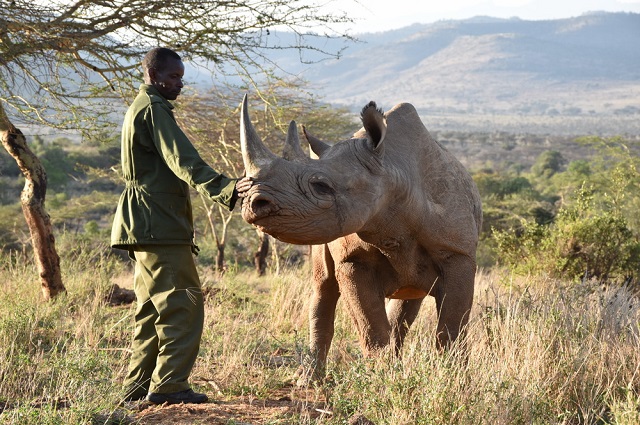
Kanungu, Uganda | XINHUA | As the world grapples with COVID-19, conservationists in Africa are striving to contain rising wildlife poaching, which has been worsened by the pandemic.
When the pandemic hit the continent about seven months ago, many countries closed their borders and limited domestic movement. This brought the tourism sector, a key foreign exchange earner to many economies, to a grinding halt.
“The biggest impact of COVID-19 on conservation was the shutdown of the tourism industry,” Kaddu Sebunya, chief executive officer of African Wildlife Foundation (AWF), one of the oldest conservation agencies on the continent, told Xinhua in a recent interview.
“Over 30 million Africans that benefited directly from the tourism industry lost their livelihood overnight,” Kaddu said, noting that national park services lost almost 50 percent of the revenues they use to protect wildlife while private conservancies lost all their revenues due to the shutdown.
In Uganda, according to Uganda Wildlife Authority (UWA), poaching during the pandemic has gone up. In Bwindi Impenetrable National Park, home to more than half of the world’s population of mountain gorillas, poaching cases have risen from about eight suspects arrested in a whole year to eight suspects arrested in just a few months.
In June, the country lost a popular silverback gorilla, which was killed by a poacher as he went into Bwindi Impenetrable National Park to hunt for duikers and a bush big.
Many other parts of Africa, according Kaddu, face a similar situation whereby some who derived their livelihood from tourism have resorted to poaching.
“Because of reduction in tourism, people were laid off, patrols in the park reduced. What that means is that the bad guys are waiting to recruit these people into poaching,” said Kaddu. “We have seen a surge in poaching, not because these are bad people but because they have lost their livelihood.”
Countries have put up counter-measures to stop the surge in poaching. In Ugandan national parks, foot-patrols have been increased; Other places have started community initiatives where scouts patrol the parks.
“I have just come back from Serengeti (national park in Tanzania),” Kaddu said. “I have seen community scouts still patrolling national parks without pay.”
The AWF, through its Africa Response Fund to COVID, has also supported patrols, giving food rations and equipment to rangers.
While the pandemic has had a negative impact on conservation in terms of falling revenues from tourism, there has also been good news, Kaddu said.
“There are some good stories. Wildlife thrived everywhere we work during the COVID pandemic,” he said. “The number of wildlife is increasing, and that tells us that when you leave wildlife alone, it thrives.”
Since July 22, Uganda has registered the birth of eight mountain gorillas, seven in Bwindi Impenetrable National Park and another in Mgahinga Gorilla National Park, on the border with Rwanda and the Democratic Republic of Congo.
Conservationists are optimistic that as countries continue to ease COVID-19 restrictions and open up their economies, tourism will resume, bringing in revenue that can be used to protect wildlife.
******
XINHUA
 The Independent Uganda: You get the Truth we Pay the Price
The Independent Uganda: You get the Truth we Pay the Price




UWA shoud now add more rengers for the betterment of uganda economy and our generation. Thanks.